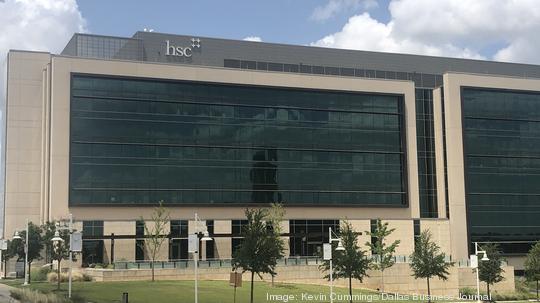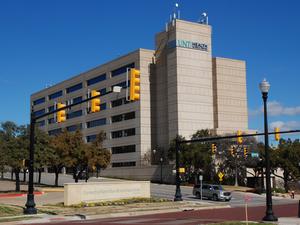
In the past, Fort Worth has been known as a hub for the cattle industry and, later, as a hub for oil and gas firms. A group of community stakeholders is looking to make it known as a hub for innovation and early-stage startups.
Looking to take advantage of the timing – as the city sees a new mayor and council members take their seats at the daises – local leaders, including entrepreneurial networking and support organization Sparkyard, have released a white paper highlighting the startup ecosystem’s shortcomings in Fort Worth in the hopes of spurring action from the city and its private sector.
“I’m quick to say that we have the No. 1 zoo in the country, but we are also the largest city in the country that does not have a true seed accelerator program,” said Cameron Cushman, Sparkyard leader and director of innovation ecosystems at the UNT Health Science Center.
According to Pitchbook, besides lacking an early-stage accelerator program, Fort Worth is host to only one venture capital firm. That, in part, translates to a lack of early-stage funding for startups in the city. According to the white page, despite being the 12th largest city in the country, Fort Worth ranks 40 for U.S. cities with the most early-stage capital funding, putting it behind Albuquerque and Omaha. The report notes that the issue isn’t just companies getting funding that issues. It’s also that new companies aren’t being created at rates seen in other Texas cities. Based on data from the Texas Secretary of State’s Office, which is industry agnostic, nearly 26,000 new companies were formed in Fort Worth between 2015 and 2019. Comparatively, in that same timeframe, more than 112,000 were launched from Dallas.
The Sparkyard white paper does offer a bright spot in the data, one it hopes shows the value of investing in and fostering the growth of new startups. Despite the lack of funding and new firm formation, Tarrant County ranked No. 3 among major Texas counties in jobs created by new companies, with more than 25,000 jobs created by companies one to two years old in 2020.
“Remember Amazon’s HQ 2, when everybody was freaking out about that a few years ago? That was a promise of 50,000 jobs,” Cushman said. “Well, in two years, in the economy that we’ve got, we’re essentially creating an Amazon HQ 2. Imagine how much bigger it could be if you put a bit more resources around it and paid attention to it a little bit more.”
The white paper offers several tangible recommendations to the city’s government and private sector stakeholders to address those issues. While the city of Fort Worth is involved in sponsoring some startup-focused events, the report wants to see more participation from the city in ecosystem activity. It also calls for the city to foster an entrepreneurial mentality by bringing in a team of coders to make the government more efficient and hiring chief innovation officers and chief entrepreneurial ecosystem officers.
“We need to focus on innovation. If we can make the city government more innovative, then that will send a big signal to entrepreneurs that our city cares about innovation,” Cushman said. “Part of the idea there is whatever the city government does, it can allow for a playground and a place where these ideas can be tested that can lead to all of these kinds of innovations, investments, jobs, etc.”
On the private sector side, the Sparkyard white paper focuses largely on creating centers for startup activity by attracting or starting an accelerator program, forming a chamber of commerce-like entity to support the needs of startups, and establishing a center for new company formation, similar to Dallas’ The DEC Network. For the city to address gaps in the data where it falls behind, the report also calls for more early-stage-focused investment firms and philanthropies and creating a cohort-based mentorship program in the city.
While Cushman said he hopes the report can help drive action from city stakeholders, he also sees raising awareness of the issues as a first step to change. To create that awareness and bring a sense of urgency, he said Fort Worth needs an identity for early-stage startup activity. For that, he has some suggestions that fit with the assets the city already has. One option, he said, is mobility, pointing towards activity at the Mobility Innovation Zone at the AllianceTexas development. Another is electrification, an industry already taking off in the region with companies like Linear Labs. Lastly, he points towards physical therapy as an option, with the city already hosting organizations with expertise in the field like the UNTHSC and the Neurological Recover Center.
“The goal here is to see some action. The goal here is to see some change. The only way that this is a failure is if nothing comes of it,” Cushman said. “This is about generating the conversation and getting it going.”
EDITOR'S NOTE: NTX Inno is a media partner of Sparkyard.








